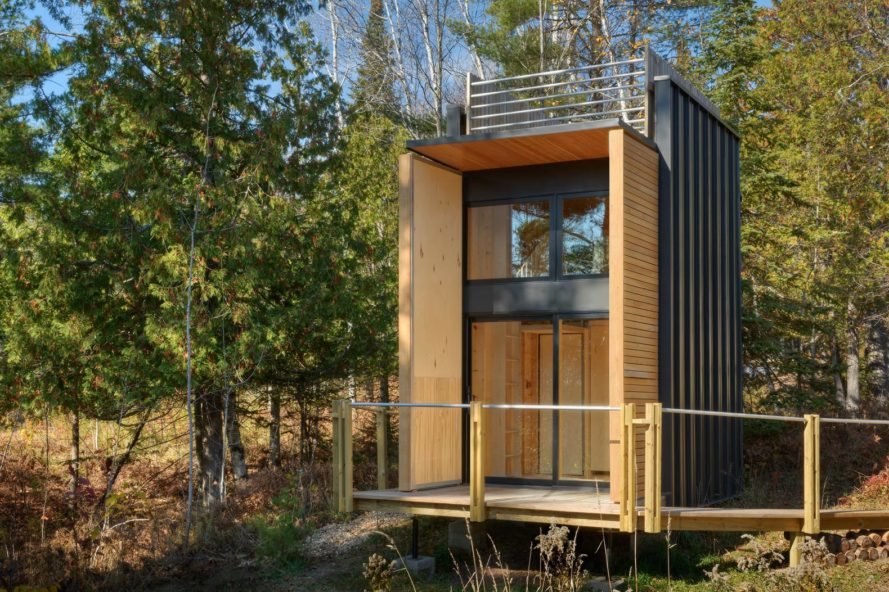
There are several benefits to living off the grid. The costs of electricity, food, sewage, and land are lower than they are in traditional homes, and you can save money while still enjoying modern amenities. But, are they worth it? Read on to find out. Here are three factors that you should keep in mind when planning your future off the grid home. Read on to learn more about the costs of off the grid homes. And, don't forget about the Land requirements.
Costs of living off the grid
When it comes to the costs of living off the grid, there are some obvious ones to consider. The total cost of purchasing a plot of land and building a functioning house can easily exceed $100,000. But you shouldn't let this deter you from living off the grid. Instead, start with small steps, like planting a garden and starting a farm. The time and effort spent will be rewarded in the long run. Ultimately, you'll save a lot of money.
First of all, land costs are a significant factor in the initial cost of off-grid living. Land costs in California, Arizona, North Carolina, and Florida are the most affordable states for off-grid living. In many cases, you will need a huge parcel of land to set up your off-grid homestead. Even if you are able to find free land, it will most likely come with conditions that make it impractical for off-grid living.
Energy efficiency
One of the most important considerations when building an off-the-grid home is access to water. Most off-the-grid homes use rainwater as their sole source of water. A Queensland, Australia off-the-grid home has won numerous awards for its sustainable design. It collects rainwater from its entire roof area and stores it in a 250,000-liter in-ground tank. It also has an advanced sewage treatment system to minimize its dependency on municipal services.
When planning off-grid living, energy efficiency is crucial. If you live in a sunny area, you can utilize rainwater for irrigation, but it will only be useful if you receive rainfall every couple of days. Additionally, insulation will help keep heat from leaving the home. Since heating and cooling are two of the main applications of power, it's important to optimize your wiring to reduce the amount of electricity lost. Efficient wiring will allow you to use electricity more efficiently, so that the power is more reliable.
Sewage disposal
While many people have the ideal off-grid home, they may not consider sewage disposal. Sewage disposal for off-the-grid homes is a critical component of living off the grid. Fortunately, there are a number of solutions for this problem. One option is a compost toilet, which consists of a bucket filled with sawdust. However, this can be expensive, and you should consider other options before attempting to build one yourself.
While traditional city sewerage systems utilize a network of pipes to collect wastewater and transport it to a treatment facility, off-grid homes use more natural methods to dispose of waste. Instead of hauling waste off-site, off-the-grid homes use a compost toilet, septic tanks, or aerobic systems. When choosing the best system for your home, you should first learn what each type of waste disposal system does.
Land requirements
When building an off the grid home, you'll need to determine the land requirements. In cities, lots may be only 5000 square feet or smaller, while rural land is typically 5-10 acres. Land requirements will vary depending on the area, climate, and lifestyle. Listed below are the most important factors to consider when choosing acreage. Also, consider your budget, as larger acreages are more expensive than smaller ones.
State laws for off-grid living vary from one state to another. In some states, you need to follow building codes to build a homestead. In other states, you may be able to build a simple, low-energy home, but you might need to comply with strict building codes. If you plan to use solar panels, you should double check the solar permitting laws in your state. However, even if zoning laws are not strict, you can find cheap land that still requires solar panels.
Check out the best trail cameras on Amazon
Did you miss our previous article...
https://bushcrafttips.com/what-is-bushcraft/ontario-chimera-tactical-knives
 What is BushcraftSurvival SkillsToolsVideosBushcraft CampsBushcraft KitsBushcraft ProjectsPrivacy PolicyTerms And Conditions
What is BushcraftSurvival SkillsToolsVideosBushcraft CampsBushcraft KitsBushcraft ProjectsPrivacy PolicyTerms And Conditions
